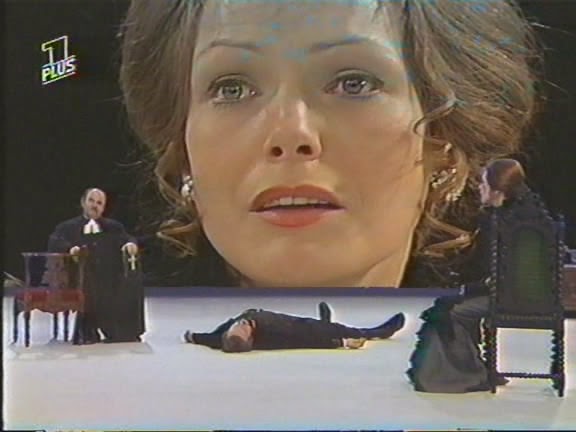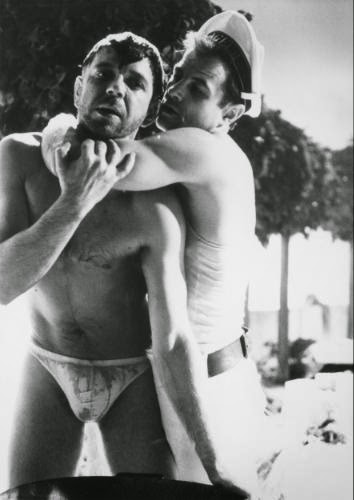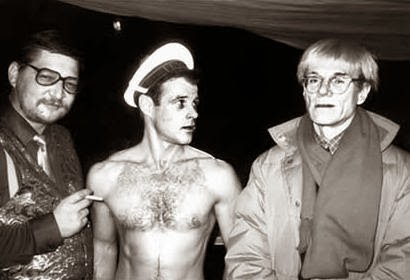From somewhere deep down came the need this week to revisit Rainer Werner Fassbinder's world. It's been a year since a friend sat me down in front of the close-to-the-bone Fox and his Friends (where Fassbinder stars as a working class gay who wins the lottery), and my thirst for the director's caustic eye had been building up ever since.
 |
| Fassbinder himself in Fox and His Friends (1975) |
Which is why I went ahead and swallowed three of his films in 24 hours.
First, The Bitter Tears of Petra von Kant (1971). This three-woman drama about possessiveness and class shows the very thin Margit Carstensen as Petra, a Bremen-based fashion designer, who falls for commoner Karin Thimm (the very stunning Hanna Schygula).
 |
| Hanna Schygula (20 years before Jean-Paul Gaultier's cone-bra dress for Madonna, anyone?) and Margit Carstensen |
The entire film unfolds in Petra's room. There is no music, and the atmosphere is tense and fabulously ritualistic, like a Greek drama. Of course the Petra-Karin liaison goes tits up and Petra ends up crying very bitter, gin-fuelled tears. In Fassbinder's world, someone always gets exploited. But you can't help but feeling they deserve it a little.
Next I stumbled upon Bremer Freiheit, a play Fassbinder wrote and directed just a year before he made Petra von Kant. And there are some hints at that: Margit Castensen plays Gesche Gottfried, the 19th century serial killer from Bremen (I had no idea Fassbinder was so smitten with my city of birth).
 |
| Scene from Bremer Freiheit, a play written and directed by Fassbinder |
Over a period of 15 years, the working-class Gottfried (whose maiden name was Thimm - like Karin in The Bitter Tears of Petra von Kant), poisoned her entire family, including mother, father, her children and two husbands. As a child I remember spitting on the official Gesche Gottfried spit stone on the market square where she was finally executed, but Fassbinder flips the story around. He makes it about repression, about a woman's desire for emancipation. You end up rooting for the poor murderer.
Bremer Freiheit (1972), in German
 |
| A scene from Querelle |
 |
| Fassbinder, Brad Davis, Andy Warhol |
Sadly, Fassbinder did not live to see Querelle in its final version. He died three months before its premiere, from a drug cocktail, aged 37. In a career that lasted fewer than 15 years, he completed 40 feature films, two television film series, three short films, and 24 stage plays. And there I was, worrying that watching three films in one day was excessive. There is still so much to do.


No comments:
Post a Comment